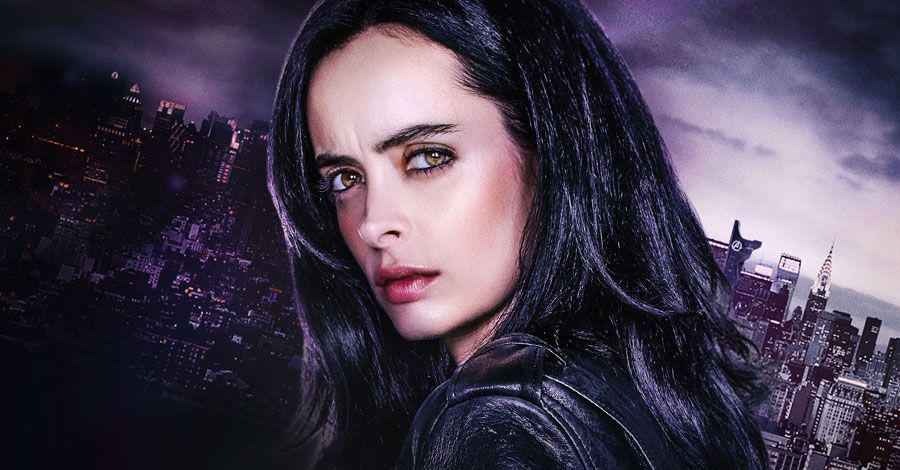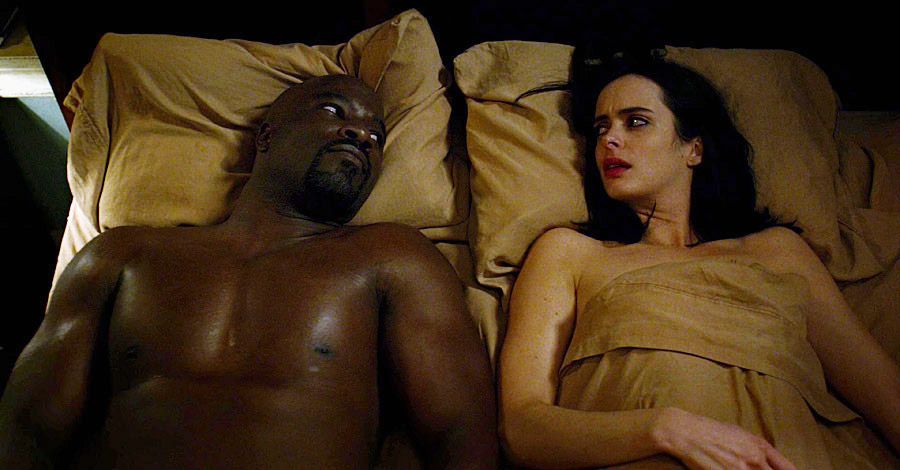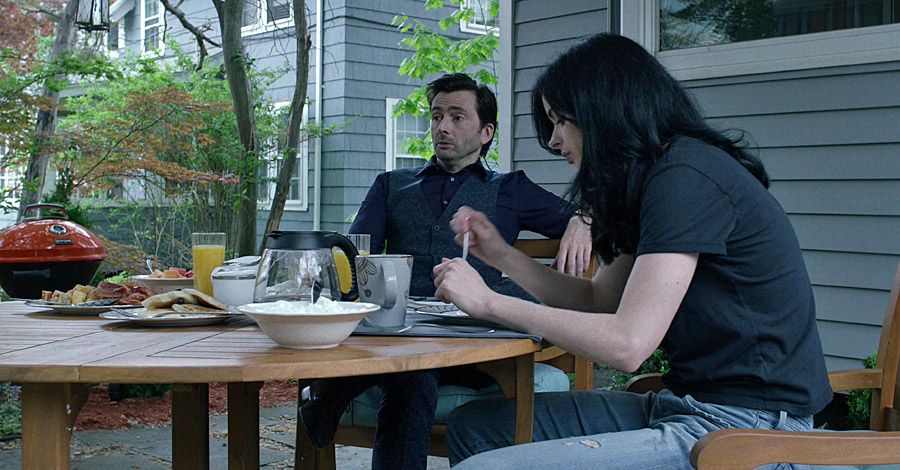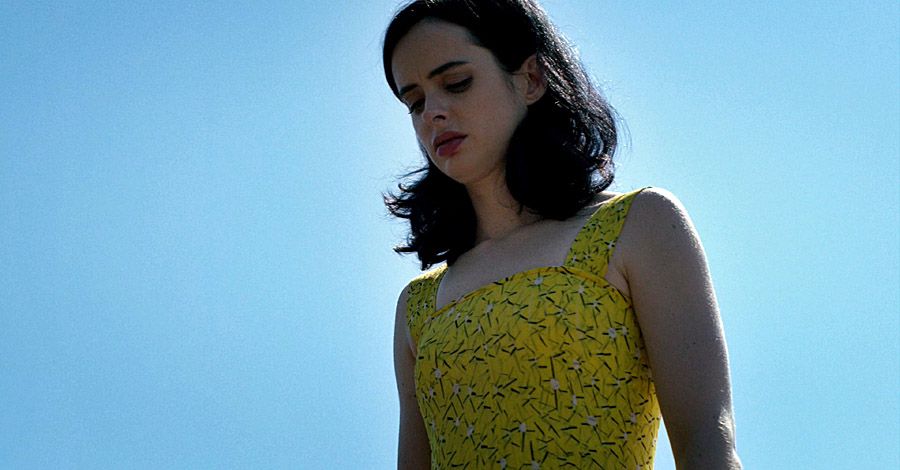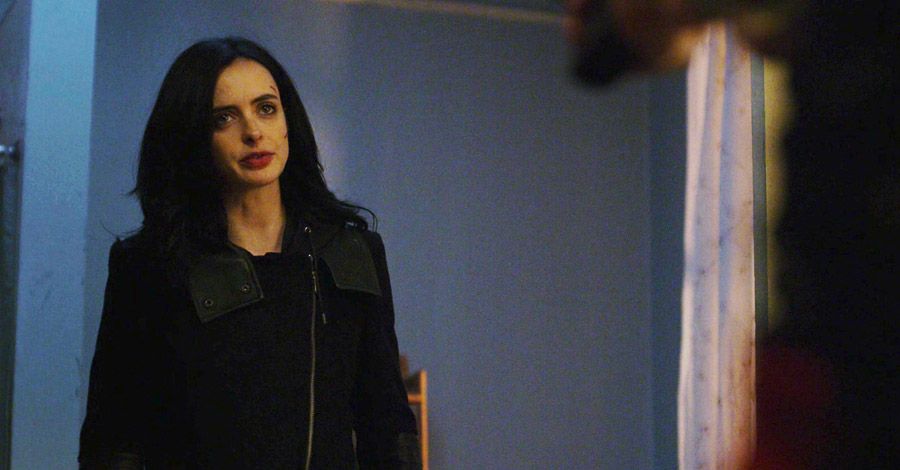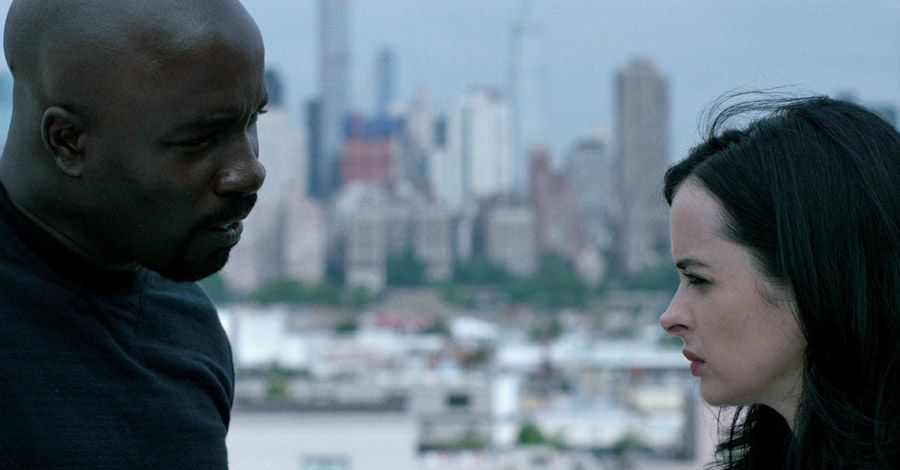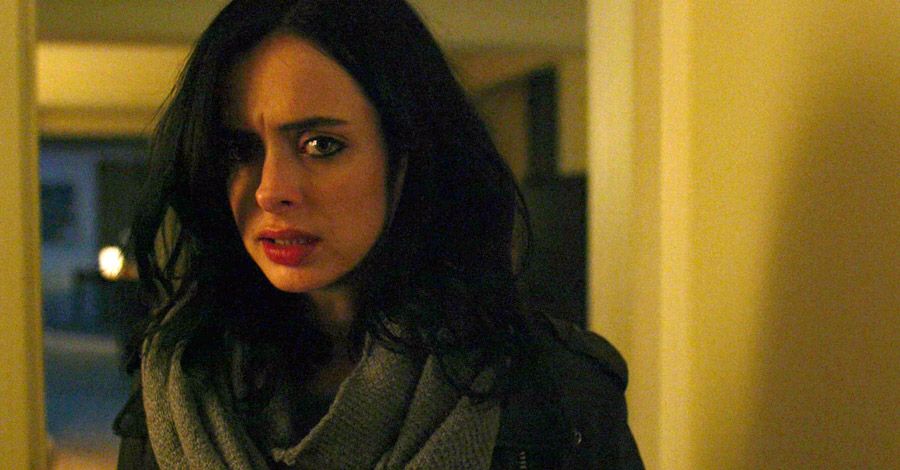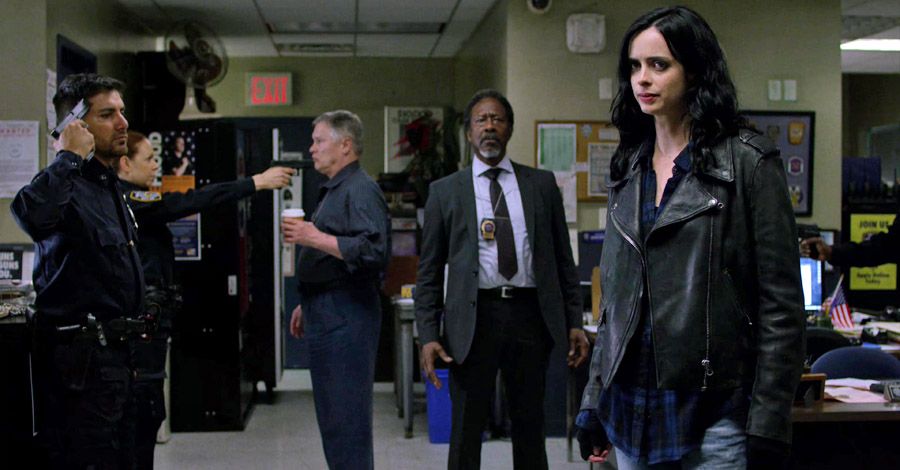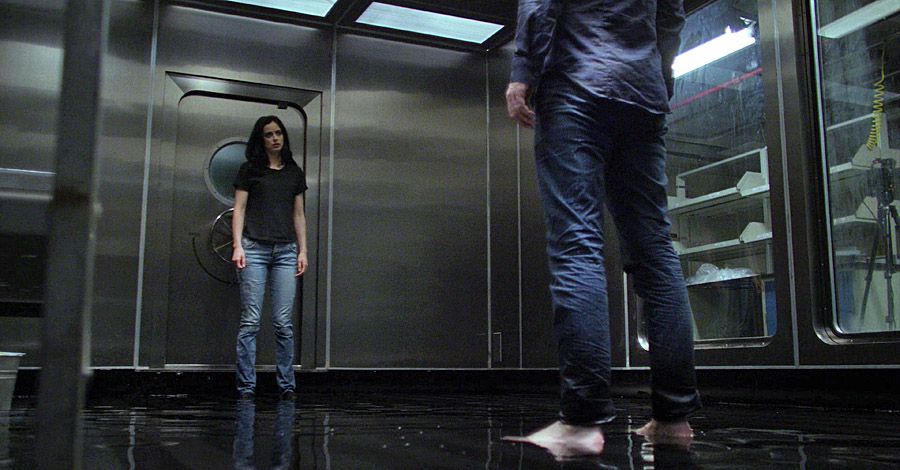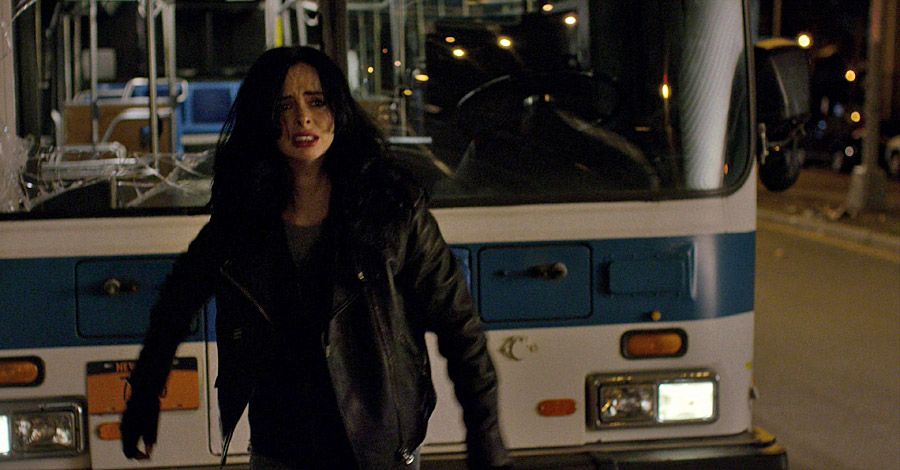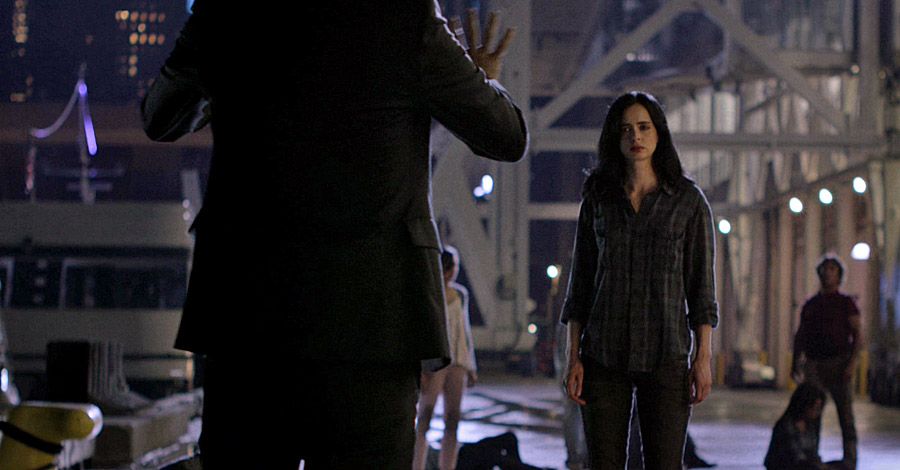Warning: The following article contains spoilers for Marvel's "Jessica Jones" Season 1, available on Netflix.
The 68th Primetime Emmy Award nominations were announced this morning, and to the great disappointment of fans of Marvel's "Jessica Jones," neither the Netflix drama nor its star Krysten Ritter are among the contenders. (It did, however, receive nods for outstanding main title design and theme music.)
Although the series was a favorite among unlikely choices for in the drama category, the true tragedy is the snubbing of Ritter, who clearly deserves recognition for her work. The actress, who was previously best known for her role on the sitcom "Don't Trust the B in Apt 23," displayed new levels of emotional gravitas in her portrayal of Jessica Jones, a rape victim with symptoms of post-traumatic stress disorder (who also happens to have superhuman strength).
Minus the superpowers, it's exactly the type of character profile that normally attracts nomination. Given that Ritter displayed true mastery in her portrayal of Jones' complex emotions, it is akin to highway robbery that she didn't get the nod.
Although the Television Academy may have overlooked Ritter's performance, CBR is celebrating it with a rundown of her 10 best moments from "Jessica Jones" Season 1.
10 When she can't handle pillow talk, in Episode 3
Jessica Jones and Luke Cage start sleeping together in Episode 3. There's a perfect moment in the middle of the episode, where Jessica begins to get vulnerable with him. She might be incredibly strong, but it's clearly hard for her to do: She turns her body away from him, and speaks to the ceiling.
If you re-watch the series, and you know about their complicated history, you realize Jessica is hiding much more from Luke than she lets on. This scene is the first step toward her telling him the truth about his wife's death, which predicates his knowing that mind control is possible.
9 When she eats an awkward breakfast, in Episode 8
Although a deeply troubling episode, one of the best displays of Jessica's interaction with Kilgrave occurs while they have breakfast outside of her childhood home. Jessica fills her plate enthusiastically, only to lose her appetite when their neighbor wanders up.
The conversation that follows reveals some of Jessica's origin story, including her love for her parents and her younger brother. But, most interestingly, it provides Jessica with her first opportunity to harness Kilgrave's powers, for better or for worse: When the neighbor speaks unkindly about the car accident that killed Jessica's family, Kilgrave gives her the opportunity to get revenge. Although it isn't scripted, it's clear from her facial expressions that she considers it.
In the end, she realizes Kilgrave "can't be a hero" without her, which forces her to choose between her life and happiness, and the potential good they could do.
8 When she tries to jump off the roof, in Episode 10
By far one of the most troubling aspects of Jessica's story is her mind-controlled period. Flashbacks into her behavior under Kilgrave's spell make it clear the extent of trauma she has been through, and reflect tragic elements of sexual and physical abuse.
In this flashback, we see Jessica attempt to jump off of the roof of their city high-rise in order to escape from his control. Although her eyes are brighter, she's clearly not strong enough to escape, at least not yet. She imagines falling from the roof, landing safely, and escaping on a white horse. When she returns to reality, she's forced to step off of the ledge, and almost cuts off her own ear. Her blank agreement to Kilgrave's demands is chilling.
7 When it becomes clear Jessica isn't a hero, in Episode 4
This is the episode that most departs from the main Kilgrave storyline. A private investigator, Jessica is hired to track a cheating husband, only to discover her client is actually seeking revenge for the havoc wreaked by the Avengers in New York City.
"You saved the city. That's what the newspapers said. You were heroes," her client says, winding up for a rant about collateral damage.
"Not me," Jessica replies with one of the best faces we've seen from Ritter so far. "I wasn't even there!"
Jessica's reluctance to be grouped in with Marvel's more mainstream superheroes is canon, and one of her most endearing qualities. Its inclusion here -- in combination with a healthy dose of furniture throwing -- makes the entire episode worthwhile.
6 When Luke forgives her, in Episode 12
Because their parting was so brutal (more on that later), the scene when Luke finally forgives Jessica for her involvement in his wife's death is similarly powerful. "I forgive you," he tells her, on a rooftop overlooking the city. "And I'll say it every day for as long as you need to hear it."
Ritter doesn't have many lines in this scene, but she watches him while he speaks, and winces when he absolves her. Her eyes linger on his face when he falls silent, as though verifying that she can trust him again.
5 When the elevator door opens, in Episode 1
By the end of the first episode, we already know a good bit about Jessica. She's clearly been through a lot, and has learned to protect herself with sarcasm and scathing wit that reeks of misery.
But it isn't until these final moments of Episode 1 that we truly see the immense vulnerability behind Jessica's brusque nature. Coincidentally, it's also the first time we have any idea how awesome Ritter's portrayal is going to be.
As the elevator doors slide open to reveal what Hope has done to her unsuspecting parents, Ritter's face reflects horror, understanding and past trauma all at once. As she stumbles away from the scene of the crime, she invites you into Emmy-worthy levels of empathy.
4 When she encounters Kilgrave in the police station, in Episode 7
As the season approaches its end, the high-intensity moments become only more frequent and more fascinating. In Episode 7, Jessica and Kilgrave finally find themselves in the same room - it's all a part of his plan to profess his love, apparently.
"You have been ruining my life ... as a demented declaration of love?" Jessica asks, incredulously. There are 10 or so cops with guns pointed at each other, or at their own heads, all victims of Kilgrave's mind-control powers.
"I'll come with you," she says bravely, although visually she's clearly torn between her instinct for self-preservation and her gradual climb toward something resembling true heroism. She's obviously scared, but she's still stubborn and angry too, and Ritter wincing out from beneath her dark hair is perfection.
3 When she realizes she's immune to Kilgrave, in Episode 9
The end of Episode 9 marks the turning points of the series, and heavily relies on Ritter's acting chops.
After a grotesque interaction between Kilgrave and his parents, the villain escapes, only to be caught by Jessica. Her hand on his arm is too strong. "Let go!" he demands, but she hesitates. In the moment between their eyes, it becomes clear: She doesn't have to if she doesn't want to.
Although she allows him to escape, it's only to maintain her advantage; her smile at the realization is subtle perfection.
2 When she finally tells Luke, in Episode 6
A major source of secondary tension throughout the series is Jessica's inability to tell Luke about her role in his wife's death. It finally happens in Episode 6, when Luke pursues the alcoholic bus driver who struck Riva.
Despite the driver's apparently sincere apology, Luke cannot be dissuaded. When Jessica steps in, it becomes clear her super-strength is no match for Luke's fury. "Charles didn't kill your wife," she calls out in desperation. "It was me. I killed Riva."
What ensues is some of the best acting Ritter has offered yet. "You slept with me," Luke says, enraged.
"I didn't plan that," Ritter says quietly, with her eyes full of tears. "It just happened."
If you could win an Emmy for a single scene in a single television show, then Ritter would walk away with the statue for this one.
1 When she gets her revenge, in Episode 13
Because superheroes are innately good, they have a complicated relationship with death. They're not supposed to kill -- which is why it's a good thing Jessica Jones isn't actually a hero.
To be fair, Kilgrave pushes her to the edge, and it shows in her interactions with him in the final moments. "Smile," he tells her, and she offers the same, idyllic expression she gave him when she was under his control.
"Tell me you love me," he says, and she looks past him to Trish. "I love you," she says, with her eyes on her friend. And then, she snaps his neck.
If that's not Emmy-worthy acting, then what is?
To decide for yourself whether Ritter deserved the nomination, watch the full series on Netflix, where it is streaming now.

